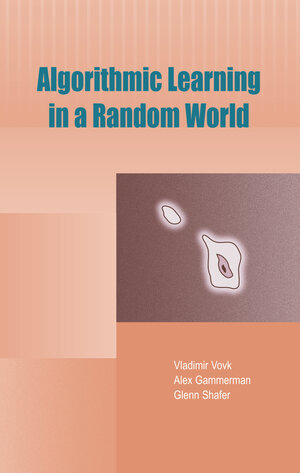
×
![Buchcover ISBN 9780387001524]()
From the reviews:
„Algorithmic Learning in a Random World has ten chapters, three appendices, and extensive references. Each chapter ends with a section containing comments, historical discussion, and bibliographical remarks. … The material is developed well and reasonably easy to follow … . the text is very readable. … is doubtless an important reference summarizing a large body of work by the authors and their graduate students. Academics involved with new implementations and empirical studies of machine learning techniques may find it useful too.“ (James Law, SIGACT News, Vol. 37 (4), 2006)
Algorithmic Learning in a Random World describes recent theoretical and experimental developments in building computable approximations to Kolmogorov's algorithmic notion of randomness. Based on these approximations, a new set of machine learning algorithms have been developed that can be used to make predictions and to estimate their confidence and credibility in high-dimensional spaces under the usual assumption that the data are independent and identically distributed (assumption of randomness). Another aim of this unique monograph is to outline some limits of predictions: The approach based on algorithmic theory of randomness allows for the proof of impossibility of prediction in certain situations. The book describes how several important machine learning problems, such as density estimation in high-dimensional spaces, cannot be solved if the only assumption is randomness.




